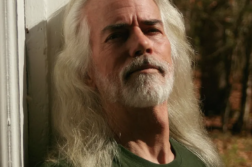WHAT FOLLOWS is a conversation between Charles Silverstein and Perry Brass that took place at a Barnes & Noble in New York City in early January of this year as part of an event to launch Silverstein’s memoir For the Ferryman.
Charles Silverstein is a psychologist, a gay activist, and the author of eight books on homosexuality. Dr. Silverstein rose to national prominence when he helped to spearhead the actions that would lead the American Psychiatric Association to declassify homosexuality as a mental illness. After participating in a “zap” protest at the APA convention in the summer of 1972, he pressed to make a presentation to the committee in charge of the APA’s (in)famous Diagnostic and Statistical Manual, which he did on February 8, 1973, making the case for the deletion of homosexuality based on research and clinical practice. The year before, a panel at the APA’s general convention featuring “Dr. H. Anonymous” (discussed in this issue by Margaret Rubick) had introduced some of these arguments, and by the end of 1973, the organization had voted to eliminate homosexuality from the next edition of the DSM.
In addition to his clinical practice, Dr. Silverstein has founded two gay counseling centers in New York: Identity House is a peer counseling center, and the Institute for Human Identity is a full-scale psychotherapy center for GLBT people. His best-known book is The Joy of Gay Sex, of which he co-authored two editions (with Edmund White and Felice Picano). His latest book, For the Ferryman, is a memoir that weaves his personal story, starting in early childhood, with his professional life and gay activism over four decades.
Perry Brass has published fifteen books, and has been involved in the GLBT movement since November of 1969, when he co-edited Come Out!, the world’s first gay liberation newspaper. In 1972, with two friends he started the Gay Men’s Health Project Clinic, the first clinic for gay men on the East Coast, still operating as New York’s Callen-Lourde Clinic. Brass’s work often deals with the intersection of sexuality, spirituality, and personal politics. He is currently a coordinator of the Rainbow Book Fair, the oldest and largest GLBT book fair in the U.S.






